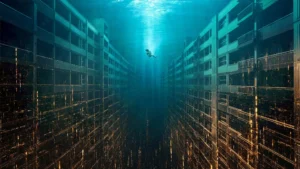Summary
Informer is a high-quality Amazon Prime Original drama with new and established actors; character-driven and thought-provoking. Highly recommended.
Sometime last year, the realisation dawned on me: Paddy Considine is a sublime actor. You don’t necessarily understand everything about his character, but you can’t help but feel as though you do. (Thinking about it it probably came to me the second or third time I watched The Death of Stalin: he was central to the opening scene.) So when I discovered Considine was playing a key figure in BBC’s and recently Amazon Prime’s new drama, Informer… well, that obviously became the show I would watch next.
The series opens with a courtroom scene in which a witness is recalling a shooting which took place in a London coffee shop. Actually, every episode opens with another witness recalling their perspective on this incident. But Amazon’s Informer is only superficially about this shooting: it won’t take long to realise the plot is more about the various strands of people’s lives which led up to that event.
The story proper starts when Paddy Considine’s Gabriel Waters and his new partner Holly Morten (Bel Powley) in the Counter-Terrorism Unit persuade Raza Shar (Nabhaan Rizwan) to keep his ear to the ground and report back anything suspicious in the neighbourhood. They are on the lookout for one terrorism suspect in particular and their theory is that someone Raza knows is likely to know where he is, or at least be able to dig around for that knowledge. We watch Raza start out as a reluctant informer and gradually develop the contacts that the CTU needs; and along with that, the scope of the story broadens to encompass the families and social circles of those three main characters, along with some personal and private insights. It is when each person’s world starts to overlap that the investigative protocols are put at risk and things steadily unravel.
BBC has given us some great TV dramas this year (such as Bodyguard and Black Earth Rising) and some poor ones (such as Requiem and The Cry). Informer firmly falls into the first category, with a pace and realism somewhere between Bodyguard and Black Earth Rising, and as well written as them both. It isn’t as glamorous as Bodyguard, nor does it sprinkle plot twists about so recklessly: Informer doesn’t hang all its value on a dramatic plot though, but on the writing of its characters; and in that respect particularly, Informer is more successful than both the previously mentioned shows. The people are both accessible and believable, and the cast is perfectly chosen, able to portray complex individuals without any appearance of confusion or being out of their depth.

I’ve already described Paddy Considine’s qualities as an actor. His role as Gabe Waters, a former undercover officer, shows someone who wants a “normal life”, and struggles with keeping aspects of his life separate, while showing immense commitment to his job, his family and the people he works with. Powley’s Holly Morten is a very interesting person: she presents as high-functioning autistic, in a fairly obvious way, with the usual/clichéd sharp observation and poor social skills. I’m pleased she doesn’t follow the Saga Noren model (autistic boys tend to behave the same on screen, so I was beginning to expect that of autistic women too): the main difference being that Holly’s observational skills are married with intense curiosity; maybe that’s what makes her a good detective, at least until she puts her curiosity above protocol.
The real star in Informer, though, is newcomer Nabhaan Rizwan as Raza Shar. His performance made Shar’s character a lot more believable than it could have been, with a development that reminded me at times of Riz Ahmed in The Night of… It wouldn’t surprise me if he is recognised in TV awards, and I do hope so: he deserves credit and more great roles. I’m just wary that good Asian actors are so often given roles relating to their faith/ethnic background, or about being terrorist suspects, etc., whereas they could just as easily be the detective, the judge or just a regular person.
As well as the characters, the treatment of London’s cultures and subcultures that these characters come from is also very well done in Informer. This isn’t like Collateral, which also examined various demographics of London following a shooting. In that show, each group was presented as the epitome of the cultures they represented, examples on show almost; whereas in Informer, the individuals in the Muslim family (for example) has more to them than just their faith; and the same can be said for the other subcultures too. A little more attention to detail seems to have been paid to the white right-wing group which features here and there, but I couldn’t say whether that is a quirk of the plot or flawed research.
Underneath the plot and the characters, Informer brings up a thought-provoking theme: relationships are fragile because our understanding of each other and communication between us all is never quite complete. Misunderstandings, hunches, leaps of logic and false conclusions may be the basis for some powerful TV drama, but shows like this remind us that we might be better off without that type of drama in real life. A favourite scene of mine from Informer is near the end when Gabe is shown to truly crave honesty in his life, and it makes him seem vulnerable: openness and honesty can make everything different.




